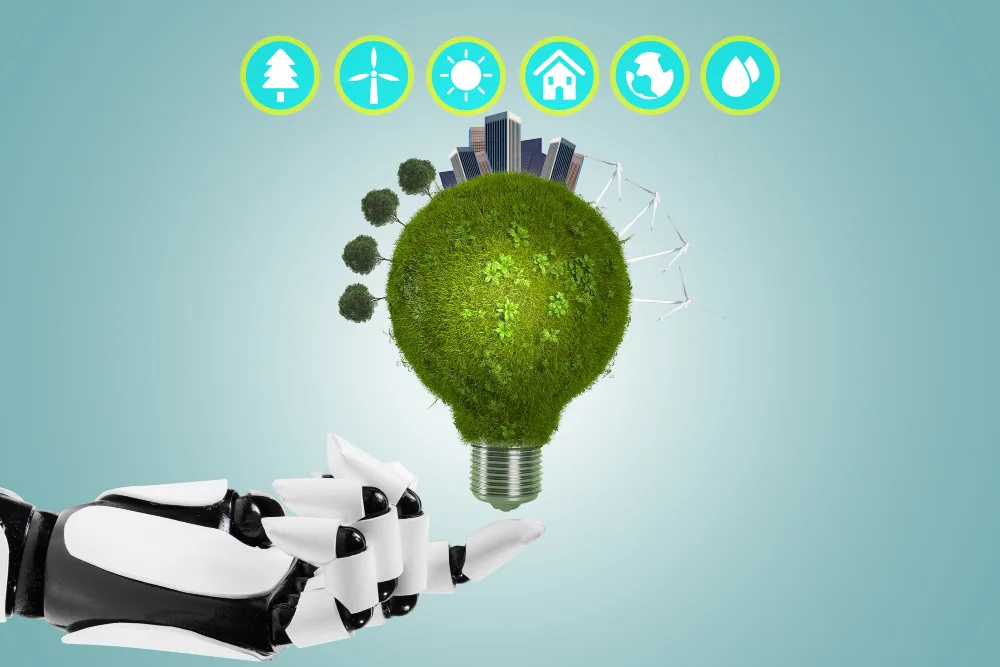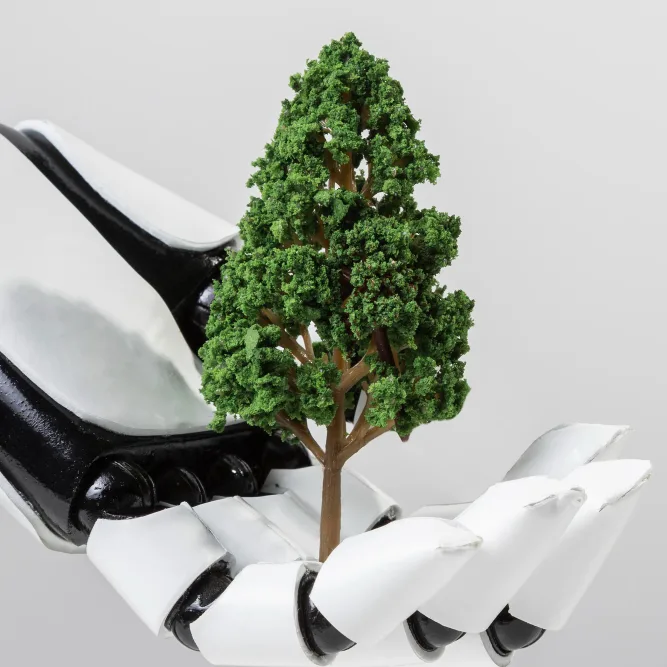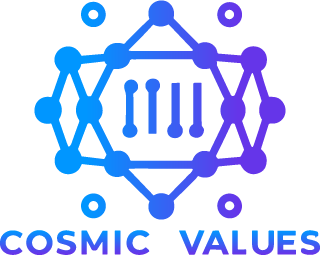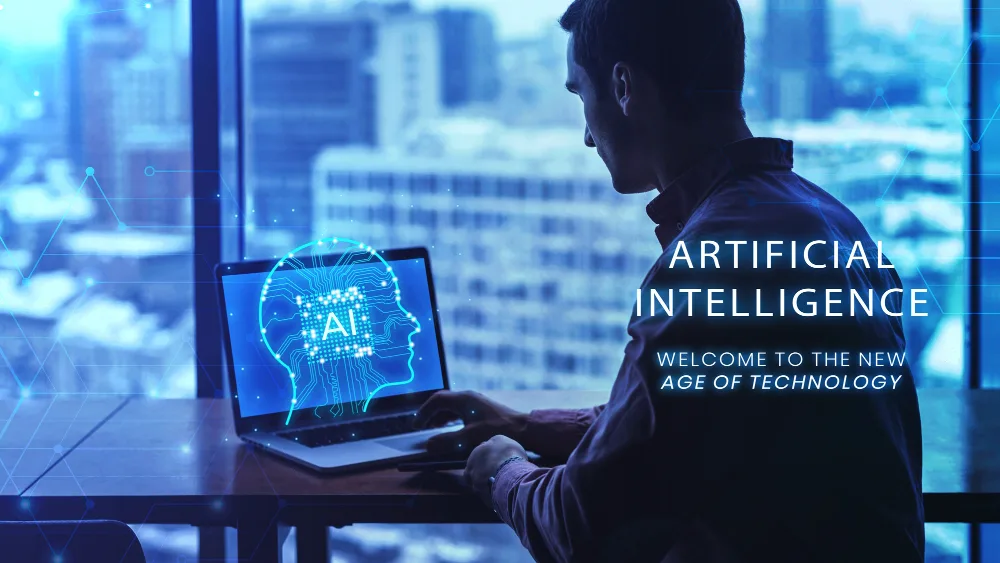In the realm of sustainable development, the integration of AI solutions has emerged as a transformative force, propelling us towards a future where ecological harmony and technological innovation merge. As an AI development company, we are at the forefront of pioneering solutions that not only redefine the landscape of artificial intelligence but also contribute significantly to green development initiatives.

The Intersection of AI and Green Development
Unleashing the Power of Data Analytics
In the pursuit of sustainable horizons, leveraging the capabilities of AI in data analytics stands as a pivotal strategy. Our AI development company harnesses the prowess of advanced algorithms to analyze vast datasets, extracting actionable insights that fuel environmentally conscious decision-making. This approach optimizes resource utilization, minimizes waste, and lays the foundation for a more eco-friendly development paradigm.
Intelligent Energy Management
One of the cornerstones of green development is the efficient management of energy resources. Through innovative AI applications, we enable organizations to optimize their energy consumption patterns. Our solutions incorporate predictive algorithms that forecast energy needs, facilitating proactive measures to enhance energy efficiency and reduce the carbon footprint.
AI in Conservation: Nurturing Biodiversity

Precision Conservation Planning
Conserving biodiversity is integral to sustainable development, and AI plays a pivotal role in optimizing conservation efforts. Our AI development company employs sophisticated algorithms to analyze ecological data, facilitating precision conservation planning. This approach ensures that conservation initiatives are strategically aligned with the most critical biodiversity hotspots, maximizing impact while minimizing disruption.
Monitoring and Anti-Poaching Measures
AI-driven monitoring systems equipped with advanced sensors and image recognition capabilities are potent tools in the fight against poaching. Our company’s commitment to green development is reflected in the deployment of these technologies, which provide real-time surveillance of protected areas. This not only safeguards endangered species but also contributes to the preservation of ecosystems vital for sustainable living.
Building Smart Cities with Eco-Friendly AI

Sustainable Urban Planning
The evolution towards smart cities demands a holistic approach that harmonizes urbanization with environmental sustainability. Our AI development company is at the forefront of developing AI applications for sustainable urban planning. From optimizing traffic flow to enhancing waste management systems, our solutions contribute to the creation of cities that are not just smart but also environmentally responsible.
Green Infrastructure Development
AI is a game-changer in the development of green infrastructure. Through predictive modeling and analysis, our solutions assist in designing eco-friendly buildings, renewable energy installations, and intelligent transportation systems. This ensures that urban development aligns with green principles, promoting a balance between technological advancement and ecological preservation.
The Future Landscape: AI for Climate Change Mitigation
The future landscape of AI for climate change mitigation holds great promise, as artificial intelligence (AI) technologies offer innovative solutions to address the complex challenges associated with global warming. AI has the potential to revolutionize various aspects of climate change mitigation, from improving the efficiency of renewable energy systems to enhancing climate modeling and aiding in sustainable resource management. Here are some key areas where AI is expected to play a significant role in combating climate change:
- Renewable Energy Optimization: AI can optimize the generation, distribution, and consumption of renewable energy. Smart grids equipped with AI algorithms can predict energy demand, manage fluctuations in renewable energy sources, and enhance overall grid efficiency. Machine learning algorithms can also optimize the operation of solar and wind farms, improving their performance and reliability.
- Climate Modeling and Prediction: Advanced AI models can analyze vast amounts of climate data to improve climate modeling and prediction accuracy. This can help scientists and policymakers make informed decisions about climate change impacts and develop strategies for mitigation and adaptation. AI-powered models can simulate complex climate systems and provide more accurate projections of future climate scenarios.
- Natural Resource Management: AI can aid in the sustainable management of natural resources by analyzing data on deforestation, biodiversity loss, and water usage. Machine learning algorithms can identify patterns and correlations, helping to optimize resource utilization and minimize environmental impact. This can contribute to more sustainable agricultural practices and responsible forestry.
- Carbon Capture and Sequestration: AI technologies can enhance the efficiency of carbon capture and sequestration (CCS) processes. Intelligent monitoring systems can identify optimal locations for CCS facilities, predict potential leaks, and optimize the injection and storage of captured carbon dioxide. This can play a crucial role in reducing greenhouse gas emissions from industrial processes.
- Climate Change Adaptation: AI can assist in developing adaptive strategies to cope with the impacts of climate change. This includes designing resilient infrastructure, predicting extreme weather events, and developing early warning systems for communities at risk. AI-driven solutions can help societies adapt to changing climate conditions and reduce vulnerabilities.
- Supply Chain Sustainability: AI can optimize supply chains to reduce carbon footprints by analyzing and optimizing transportation routes, energy consumption, and production processes. This can result in more sustainable and eco-friendly supply chain practices, contributing to overall carbon emissions reduction.
- Behavioral Change and Education: AI-powered applications can play a role in promoting sustainable behaviors among individuals and communities. This includes personalized recommendations for reducing energy consumption, waste management strategies, and educational tools that raise awareness about the environmental impact of daily choices.
While AI holds significant potential for climate change mitigation, it is essential to consider ethical considerations, potential biases in algorithms, and the need for interdisciplinary collaboration. The responsible development and deployment of AI technologies will be crucial to ensure that they contribute positively to the global effort to combat climate change. Some examples are Bing chatbot, Myflexbot, Gemini, and more.
Climate Modeling and Prediction
Addressing climate change necessitates a deep understanding of its complexities. AI, with its capacity for complex pattern recognition, plays a pivotal role in climate modeling and prediction. Our AI development company is dedicated to advancing solutions that provide accurate climate forecasts, empowering policymakers and organizations to implement proactive measures for climate change mitigation.
Carbon Footprint Reduction
In the pursuit of sustainable horizons, reducing carbon footprints is imperative. Our AI-driven solutions assist industries in optimizing their processes, identifying areas for emissions reduction, and implementing strategies for sustainable practices. This proactive approach aligns with global initiatives to combat climate change, positioning organizations as responsible stewards of the environment.
Conclusion
In the synergy of AI and green development, we find the catalyst for shaping a sustainable tomorrow. As an AI development company, our commitment goes beyond technological innovation; it extends to fostering a harmonious coexistence between humanity and the environment. Embracing AI solutions for green development is not just a choice; it is an imperative stride towards a future where progress is synonymous with ecological responsibility.



